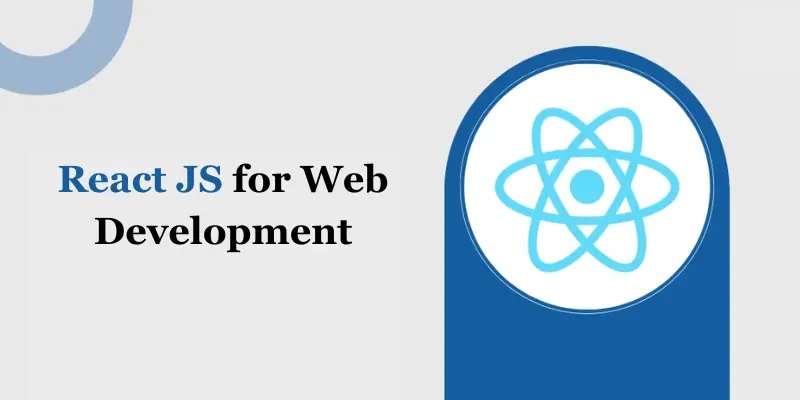
In the rapidly evolving world of web development, selecting the right technology stack can make or break a project. React.js, a popular JavaScript library developed by Facebook, has become a go-to choice for developers worldwide. Known for its simplicity, flexibility, and performance, React.js transforms how web applications are built. If you’re eager to harness its power, React JS Training in Chennai can equip you with the skills to master this cutting-edge technology. But what makes React.js the ideal choice for developers? This blog delves into why React.js should be your preferred tool for web development.
1. Ease of Learning and Use
One of React.js’s standout features is its relatively low learning curve. Thanks to its intuitive design and extensive documentation, developers familiar with JavaScript can quickly get up to speed with React.js. Unlike full-fledged frameworks, React.js focuses solely on the user interface, making it easier to understand and implement.
Using JSX (JavaScript XML) in React.js allows developers to write HTML-like syntax directly within JavaScript. This seamless integration simplifies the development process and enhances productivity. Enrol now at the React JS Training in Bangalore.
2. Component-Based Architecture
React.js’s component-based architecture is a game-changer for web development. Components are reusable, self-contained pieces of UI, which promote modular design and code reusability. This not only accelerates development but also ensures consistency across the application. Enrolling in a React JS Online Course can help you fully understand and leverage this architecture to build scalable and efficient web applications.
By breaking the UI into smaller components, developers can focus on building individual parts without affecting the overall structure. This modular approach enhances maintainability, making updating and debugging applications easier.
3. Virtual DOM for Enhanced Performance
Performance is a critical factor in web development, and React.js excels in this area with its Virtual DOM. The Virtual DOM is a lightweight copy of the actual DOM, allowing React.js to update only the parts of the UI that have changed, rather than re-rendering the entire page.
This efficient update mechanism results in faster rendering and improved application performance, especially for complex and dynamic web applications. The Virtual DOM’s ability to optimize updates ensures a smooth and responsive user experience.
Also Read: Exploring the React JS Ecosystem for Mobile App Developers
4. Strong Community Support
React.js boasts a vibrant and active community of developers, contributors, and enthusiasts. This robust community support ensures that developers have access to a wealth of resources, including tutorials, libraries, tools, and forums.
The frequent updates and improvements from Facebook and the open-source community keep React.js relevant and reliable. Developers can also leverage various third-party libraries and extensions to enhance their applications, further simplifying the development process. For those looking to expand their skill set, React Native Training in Chennai offers an excellent opportunity to explore the ecosystem and build robust mobile applications alongside web solutions.
5. Rich Ecosystem and Tools
React.js’s ecosystem is expansive, offering tools and libraries that streamline development. Tools like Create React App simplify the setup process, while React Developer Tools provide powerful debugging capabilities. State management libraries like Redux and MobX further enhance React.js’s functionality, making it easier to handle complex application states.
Moreover, React.js integrates seamlessly with other technologies, such as GraphQL and Firebase, allowing developers to build scalable and feature-rich applications efficiently.
Read more: A Step-by-Step Overview of Full-Stack Developer Architecture6. Cross-Platform Development with React Native
One of React.js’s standout advantages is its ability to extend beyond web development. With React Native, developers can use the same principles and syntax to build mobile applications for both iOS and Android. This cross-platform compatibility reduces development time and costs, making React.js an attractive choice for businesses looking to build web and mobile solutions. Enrolling in a React Native Online Course can help you master these capabilities and create versatile applications that cater to diverse platforms efficiently.
7. SEO-Friendly Features
Search engine optimization (SEO) is crucial in today’s competitive digital landscape. React.js enhances SEO performance by enabling server-side rendering (SSR) through frameworks like Next.js. SSR ensures that web pages load faster and are more accessible to search engine crawlers, improving search rankings and user engagement. Also, check out the Training Institute in Bangalore.
React.js has revolutionized the web development landscape with its simplicity, flexibility, and robust features. From its ease of use and component-based architecture to its Virtual DOM and strong community support, React.js empowers developers to build high-performance, scalable, and user-friendly applications.
By choosing React.js, developers gain access to a versatile tool that adapts to the ever-changing demands of modern web development. Whether you’re building a single-page application, a dynamic website, or a mobile app, React.js offers the tools and capabilities needed to succeed. To get started on your journey, consider enrolling in a reputable Training Institute in Chennai to gain hands-on expertise and stay ahead in the competitive world of web development. Embrace React.js today and unlock new opportunities!
Also Check: How Good is React Native for App Development?